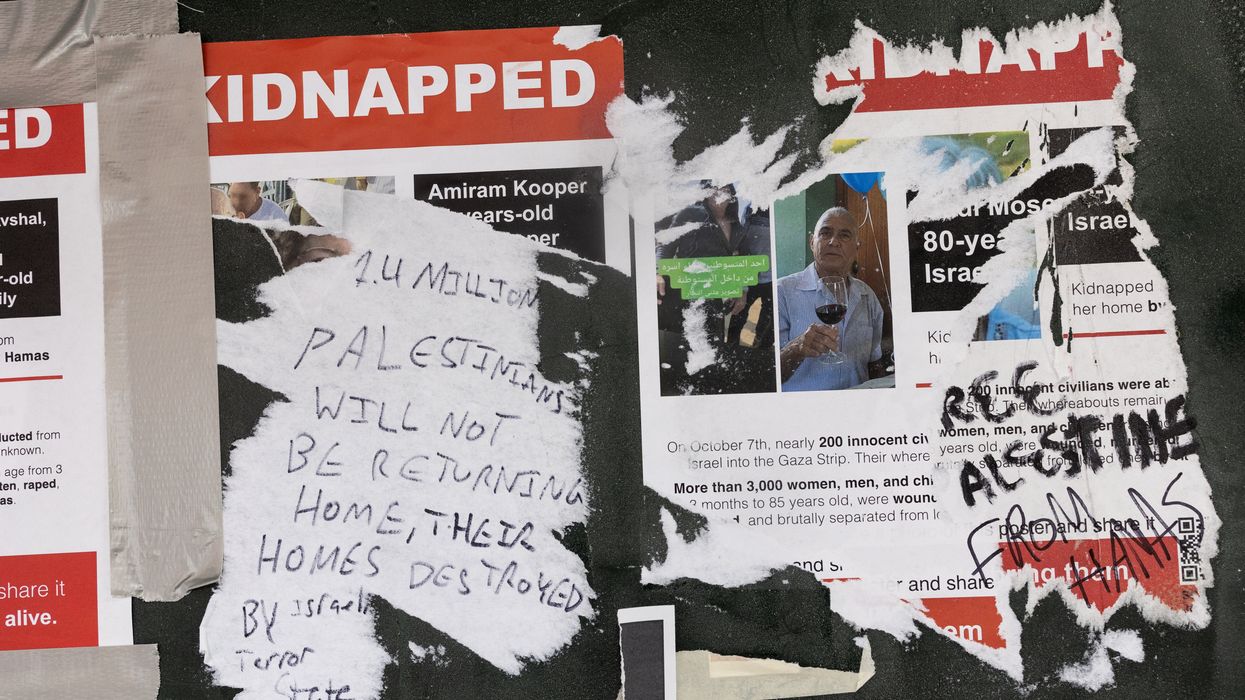Singer is a registered nurse and clinical assistant professor at University of Illinois Chicago College of Nursing. She is a public voices fellow of The OpEd Project.
Like millions across the globe, since Oct. 7 and the start of the Hamas-Israeli conflict, I have been stricken with grief, anger and emotional paralysis.
As a Jewish American woman with deep ties to Israel, I have friends and family who have friends and family killed by Hamas militants at the music festival and at various kibbutzim. I have a friend whose cousin is still a hostage in Gaza and whose chances of survival seem to diminish as news of the deaths of hostages, including at the hands of Israeli soldiers, emerge.
As a Jew serving in academia and health care with deep respect for human life, I am appalled at Israel’s military response, which disproportionately kills innocent Palestinians and destroys their lives, livelihoods and communities.
As a nurse with over a decade doing global humanitarian work, I am horrified by Israel’s targeting of hospitals, ambulances, schools and mosques and the restrictions put on the entry of humanitarian aid, even as there is evidence that Hamas threatens civilians by using these sites to conceal military equipment.
The rise, throughout the world, of antisemitism, Islamophobia and anti-Arab hatred is a tragic outcome of the war.
Yet the lack of civil discourse, especially on college campuses, is perhaps most upsetting. Students, faculty and staff seem unable to talk coherently through differences of opinion or perspective on the conflict.
Rep.Elise Stefanik (R-N.Y.) was called put in 2022 by her then fellow Republican lawmaker Adam Kinzinger of Illinois for espousing replacement theory, a conspiracy theory that accuses Jewish people of participating in a plan to diminish white Americans and their influence by replacing them with non-white Americans). And yet she took advantage of this difficult moment and turned a congressional hearing on antisemitism into a take-down of the presidents of three Ivy League universities.
Elizabeth Magill, president of the University of Pennsylvania, was forced to resign while Harvard University President Claudine Gay and MIT’s Sally Kornbluth have so far withstood calls for their resignation. Their transgression was to uphold freedom of speech and suggest that calls for the genocide of Jews does not violate the university’s code of conduct.
This political theater seems to have refocused the discussion away from what is actually happening on campuses. To be sure, calling for or glorifying the genocide of any group is abhorrent. As is carrying out acts of war that target civilians, which has led to protests and vigils on campuses across the country, where it seems everyone has staked their position as pro- one side and anti- the other.
Of course, this polarization is not unique to universities. Research shows most Americans are emotionally polarized, meaning that they dislike people from the other party — often intensely. While this emotional, or affective, polarization does not cause political violence, it creates an environment in which civic discourse is degraded and political violence becomes more acceptable.
Institutions of higher education – with their focus on knowledge acquisition, open inquiry, and the sharing and application of ideas – must be places where critique is the path to growth, disagreements are constructive, and diversity of opinion are celebrated.
Yet, it seems the academy has often become a place where adherence to dogma is the norm.
Of course, there are exceptions. Dartmouth College has been hosting programs to foster understanding about the current war. Brandeis University suspended classes to hold a teach-in with 14 sessions exploring the conflict.
These efforts must be the rule, not the exceptions. While I laud universities’ efforts to foster such dialogue, trying to repair the fabric of the community in the middle of the crisis is too late. We need to be equipping our students, faculty and staff with the skills to engage in civil discourse as part of campus culture.
Certainly, broaching controversial topics in the classroom is difficult. Students may be uncomfortable and therefore shut down – or lash out. It is the responsibility of faculty to give them the tools to manage those situations. Yet, in my experience, faculty members are not systematically provided with the tools to facilitate such dialogue or manage challenging conversations.
But change is possible. The National Center for Free Speech and Civic Engagement provides a list of resources to help institutions of higher education facilitate challenging conversations across differences. Some of the initiatives come from colleges and universities and others come from outside the academy.
As a student at the University of Michigan, where I earned a master’s degree in Middle East and North African Studies in the early 1990s, I saw students hold robust debates grounded in text, lived experience and mutual respect. We watched the signing of the Oslo Accords, waiting with bated breath to see if Israeli Prime Minister Yitzhak Rabin and Palestinian Liberation Organization Chairman Yasser Arafat would reach across the chasm that separated them ideologically and actually shake hands as a step to building peace.
During these past months, I have yearned for those sometimes very uncomfortable — but safe — conversations. Over the past few weeks, I have purposefully engaged with friends and colleagues on both sides of this debate as a way to build my own skills in engaging in and hopefully fostering civil discourse.
Faculty cannot wait for specialized training. Now is the time to start talking and to keep listening.



















Trump & Hegseth gave Mark Kelly a huge 2028 gift